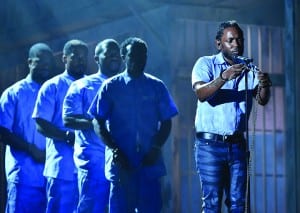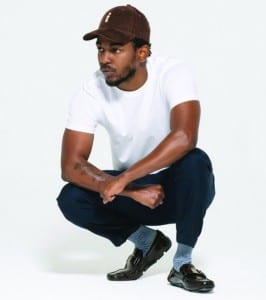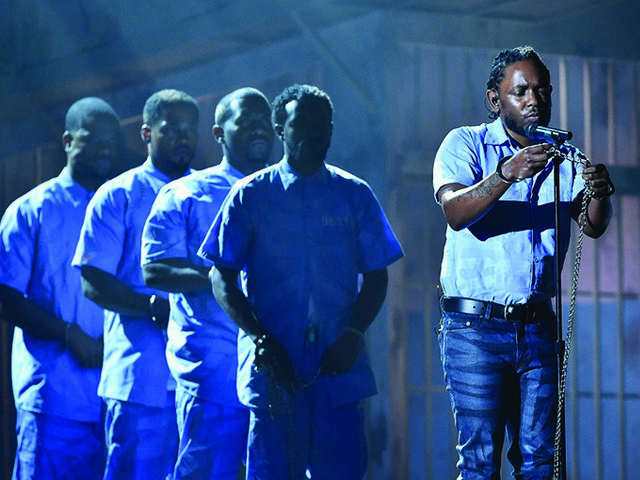 February brought us a stirring Grammy performance by Kendrick Lamar and the passing of Harper Lee, the reclusive author of To Kill a Mockingbird. Shortly before Ms. Lee published TKAM, times were different. Some suggest these times were better, but this is at best, a flimsy argument. Better? No. Naïve? Yes. They say things happen in threes: To Kill a Mockingbird, the Grammys, To Pimp a Butterfly. I finished Lee’s novel, I watched KL’s performance, and put on my son’s Beats to listen.
February brought us a stirring Grammy performance by Kendrick Lamar and the passing of Harper Lee, the reclusive author of To Kill a Mockingbird. Shortly before Ms. Lee published TKAM, times were different. Some suggest these times were better, but this is at best, a flimsy argument. Better? No. Naïve? Yes. They say things happen in threes: To Kill a Mockingbird, the Grammys, To Pimp a Butterfly. I finished Lee’s novel, I watched KL’s performance, and put on my son’s Beats to listen.
When Ms. Lee wrote TKAM, she was certainly an outlier, taking on an entire racial construction, albeit quite directly from the heart of the white community. Her mockingbird had no wings.
Enter Mr. Lamar, three score years later, an outsider as well, taking on a country still deeply damaged by its inability to directly confront its racial stupidity, ever haunted by the monstrous wrongs of the past. He addresses the heart of the black millennial community. His butterfly has sprouted wings.

I am an odd messenger for this, but it is not as far-fetched as it superficially appears. I am a product of the entire age of hip hop; I witnessed its birth, its infancy, its halcyon days, and suffer through it today.
Kendrick Lamar, however, is Harper Lee reincarnated; her mockingbird – a harmless black community done terribly wrong – is his butterfly, the beautiful result of the damaging of the mockingbird. It survives, Darwinian style, wrestling with its winged splendor and caterpillar repulsiveness. It preserves WEB DuBois’ double consciousness. It knows not what it is and exactly what it is simultaneously. It is beautiful but acutely aware of its ugliness. It has wings and wants to fly, but it is so deeply wounded that its anger grounds it. It is subject to the indignity of being pimped.
50 years after TKAM, Kendrick Lamar is the latest face of protest; in lieu of restitution, truth, and reconciliation, we have Kendrick Lamar.
Mr. Lamar earns his parental advisory certificate instantly, proudly, boldly, intentionally, and unapologetically. He takes that most feared word – the reprehensible one that even racists tell their kids never to utter – and uses it so brashly that indeed, it loses its power. The fact that it is in there with all the rest of the words we pretend never to use buries it somewhat.

Much has been said about the glorification of this word by rappers. Not only does To Pimp a Butterfly fail to glorify the word, it paints a landscape so often dreary and depressing, one wonders whether or not this is the land of mockingbirds that Ms. Lee’s horrifying white community has willfully and willingly created. It is ever bleak.
Maycomb’s mockingbird was Tom Robinson; reminding us that he is mistreated, maligned, convicted, and killed is no spoiler alert. A black, Southern, Jim Crow community is the proxy mockingbird. It has done nothing wrong and stands accused of having done everything wrong. It is patently obvious that it is unfair, but not apparent to the white residents of Maycomb.
Fast forward to 2016, and Compton is the butterfly’s Maycomb. A black urban community still harbors plenty of mockingbirds, but deferred dreams have made many promising butterflies look like predatory caterpillars. Even though many still have done nothing wrong and are routinely accused of doing everything wrong in different ways – taking deserved college places away, getting myriad advantages systemically, and being ungrateful – it remains patently clear that life is still unfair. Look at all the Comptons, the Fergusons, the Baltimores, the Flints. Despite this, like in 1930’s Alabama, it is still not apparent to half of 2016’s United States.
Mr. Lamar voices the anguish that Tom Robinson suppressed because he could not utter a word of protest. This subsequent half century has brought freedom of speech; people will no longer be shut up. Lamar doesn’t brag of girls and money. He is much more devoted to confronting an uglier truth; things just aren’t right. He is the Bernie Sanders of rappers, not oblivious to, but unfazed by pragmatism; his system is rigged, just like Ms. Lee knew.
Carl Rachelson is a teacher at Palmer Trinity School and a regular contributor to the Pinecrest Tribune. He may be contacted by addressing email to crachelson@palmertrinity.org.






